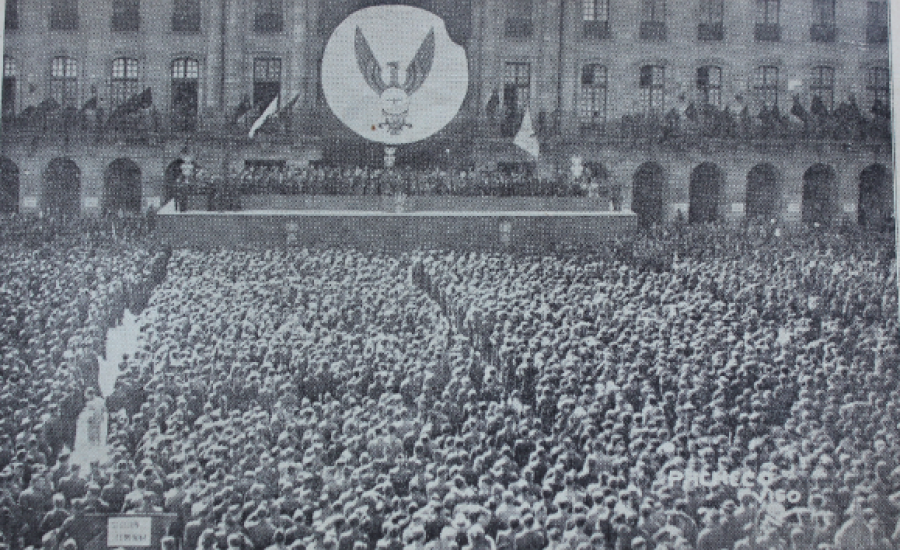Deconstructing Francoism (Santiago de Compostela)

Deconstructing Francoism (Santiago de Compostela)
The traveling exhibition Deconstructing Francoism is presented in Santiagode Compostela as a space for reflection on the symbology of the ladictadura. The sample is presented in five stages, from the PERSISTENCE of Francoism to the ABSENCES of memory. The journey reveals the veils of the retired but recoverable Francoism, the AMNESIAS draw a true cartography of terror and the designated EXPROPIATIONS of places and symbols.
The exhibition includes photographic pre-productions of spaces and symbolism that persist or were forgotten by the citizens of Santiago de Compostela and an interactive cartography that brings to the public space the places of death and burial in Galicia during the civil war.
Do 23 de xaneiro ao 6 de febreiro de 2020
Situación e horario
Paseo Central da Alameda, s/n.
Santiago de Compostela
De luns a venres: De 12 a 14 horas e de 17 a 19 horas
Sábado e Domingo:De 12 a 14 horas
Inauguración: 23 de xaneiro ás 12 horas
Roteiro:
1 de febreiro ás 11h (Duración aprox. 2 h.)
Organiza:
Rexenerando S. Coop. Galega
info@rexenerando.com
rexenerando.com
MÁS INFORMACIÓN:
http://histagra.usc.gal/gl
http://europeanmemories.net/activities/deconstructing-francoism-santiago-de-compostela/
Original idea: Jordi Guixé, Núria Ricart | Curator: Lourenzo Fernández Prieto, Antonio Miguez Macho | Coordination and Documentation: Gustavo Hervella García, HISTAGRA Group | Organization: HISTAGRA-USC Group, European Observatory of Memories of the UB Solidarity Foundation (EUROM), Public Art and Memory (Research project HAR-2017-84322-P) | Production: Research Project: Social attitudes in contexts of mass state violence: adaptation and resilience processes in the rear of the Spanish Civil War (Galicia, 1936-1939) (HAR2016-80359-P), Two places of violence to places memory: social attitudes we are confined to seclusion, execution and burial during or Coup, Civil War and Francoism in comparative perspective (ED431F 2017/11) | Collaboration: Department of History Faculty of Xeography and History of the University of Santiago de Compostela, Rexenerando S. Coop. Galega, City Council of Santiago de Compostela | Support: Barcelona City Council Co financed by the Europe for Citizens program of the European Commission.